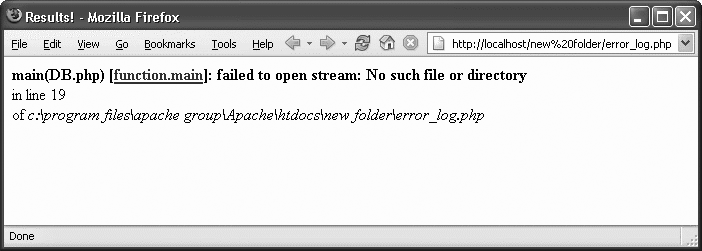Performance Tuning
Before thinking much about performance tuning , take the time to get your code working properly. Once you have sound, working code, you can then locate the slower sections, or “bottlenecks.” If you try to optimize your code while writing it, you’ll discover that optimized code tends to be more difficult to read and generally takes more time to write. If you spend that time on a section of code that isn’t actually causing a problem, that’s time wasted, especially when it comes time to maintain that code and you can no longer read it.

Once you get your code working, you may find that it needs some optimization. Optimizing code tends to fall within one of two areas: shortening execution times and lessening memory requirements.
Before you begin optimization, ask yourself whether you need to optimize at all. Too many programmers have wasted hours wondering whether a complex series of string function calls are faster or slower than a single Perl regular expression, when the page that this code is in is viewed once every five minutes. Optimization is necessary only when a page takes so long to load that the user perceives it as slow. Often this is a symptom of a very popular site—if requests for a page come in fast enough, the time it takes to generate that page can mean the difference between prompt delivery and server ...
Get Programming PHP, 2nd Edition now with the O’Reilly learning platform.
O’Reilly members experience books, live events, courses curated by job role, and more from O’Reilly and nearly 200 top publishers.

